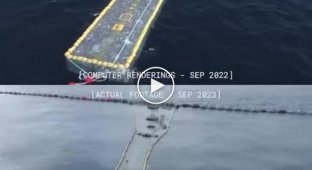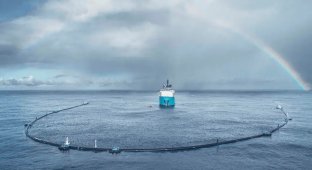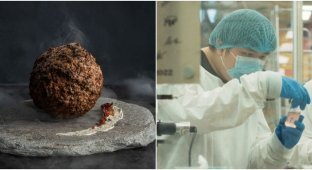Are Trash Islands Benefiting the Ocean? An alternative view of the eco-agenda (6 photos)
80% of ocean pollution is plastic. It has a negative impact on all levels of life, from single-celled organisms to you and me, those who like to eat sea fish. But even in such a big “bad” there was room for “good”. 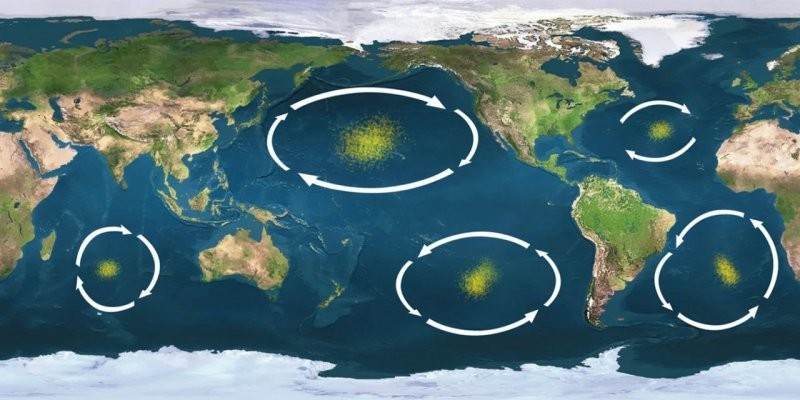
The species diversity of the central regions of the World Ocean is growing. Moreover, a new ecosystem is emerging there. And all thanks to trash! 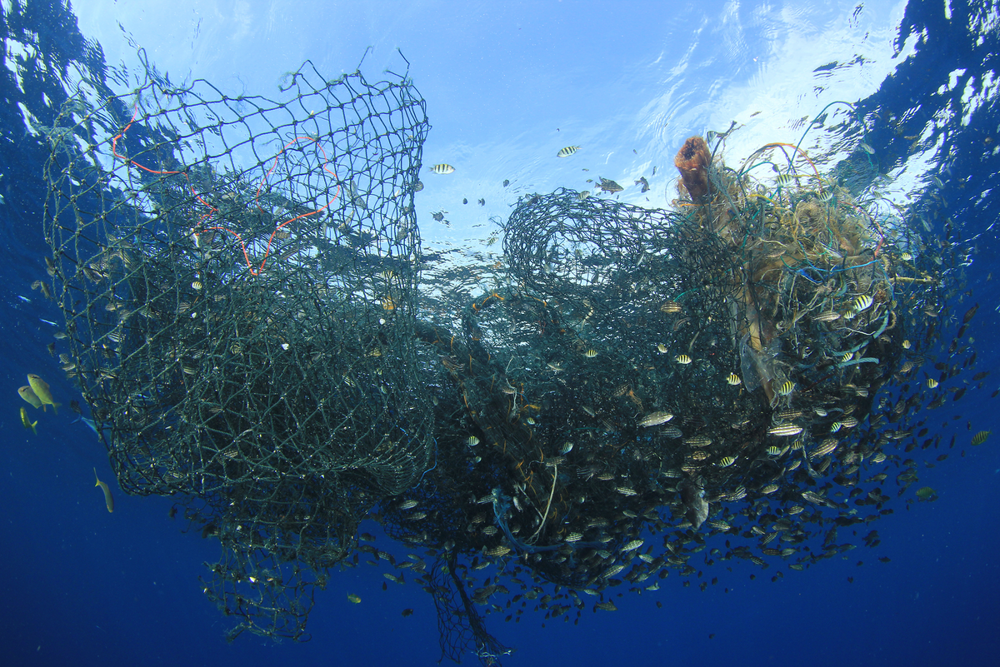
For small fish this is an ideal refuge from predators. As a result, fish colonize such landfills en masse and actively reproduce.
Approximately 9 million tons of trash end up in the oceans every year. With such volumes of waste, the laws of large numbers come into play. They say that sooner or later a traveler crab will swim away on some plastic cup, and a tiny colony of barnacles will cling to the empty canister. And all this good, living and inanimate, will be carried into the depths of the ocean, into ring currents, from which it is almost impossible to get out. 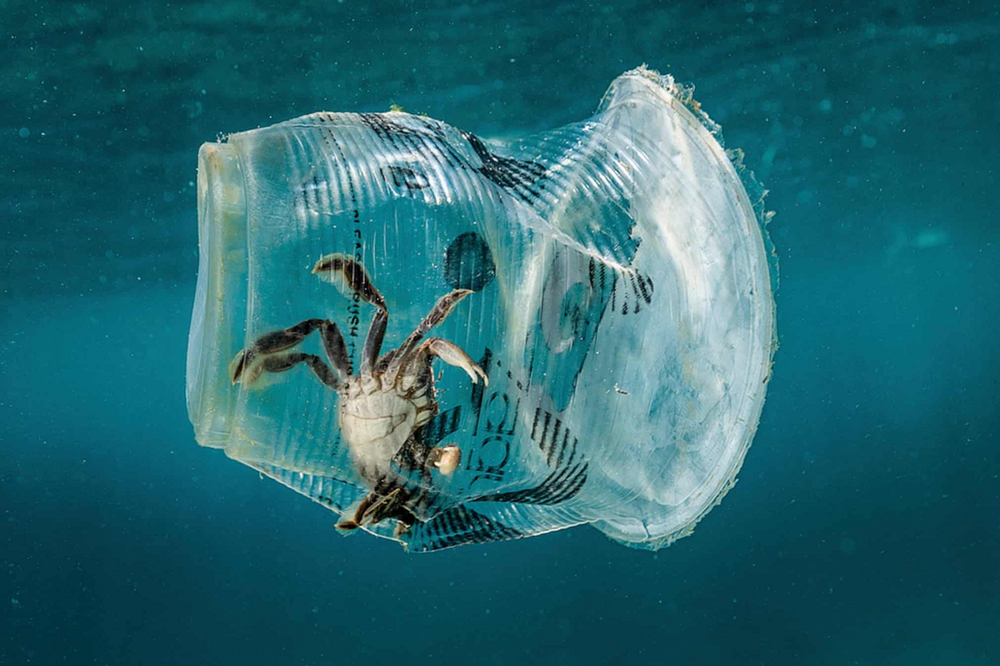
Cozy home with ocean views!
And wanderers want to live so much! And not at the very least to survive, but to reproduce and populate new territories. And some even succeed! For example, in 2020, a boat that was carried away by the Japanese tsunami in 2011 was discovered in Hawaii. And invertebrate organisms from the Japanese seas felt quite good on it. The benthic animals not only survived 9 years of wandering and thousands of kilometers of travel, they also managed to reproduce! 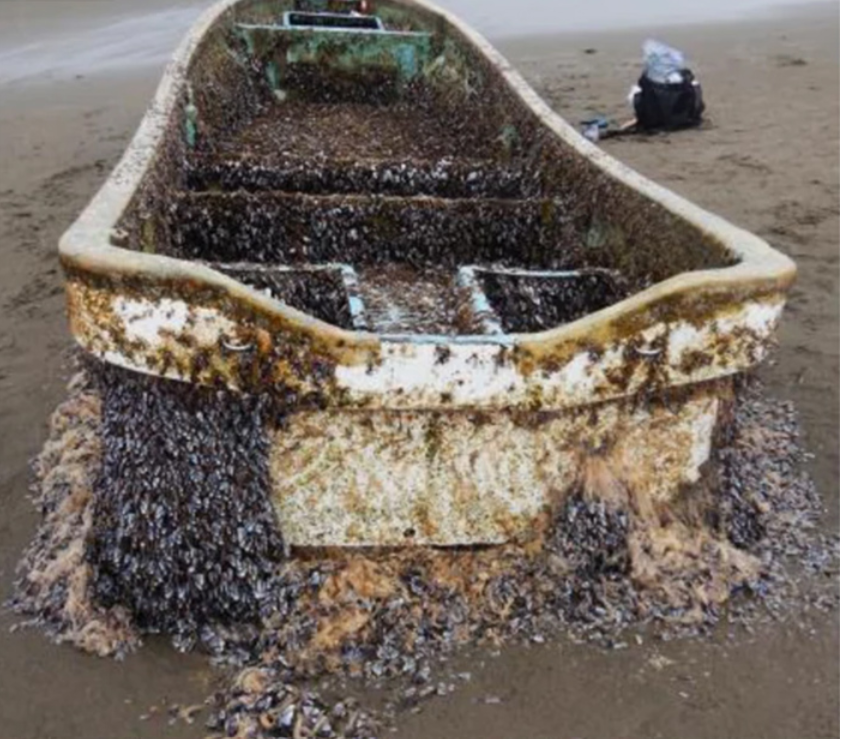
That same wanderer boat and its passengers.
Similar cases have happened before. Trees that fell into the ocean became unexpected transport for animals and plants, which were carried away from their native shores. But now this phenomenon has been put on stream, so the number and species diversity of traveler species is constantly growing. Whether this is good or bad, not only we, but also eminent researchers of the World Ocean find it difficult to say. 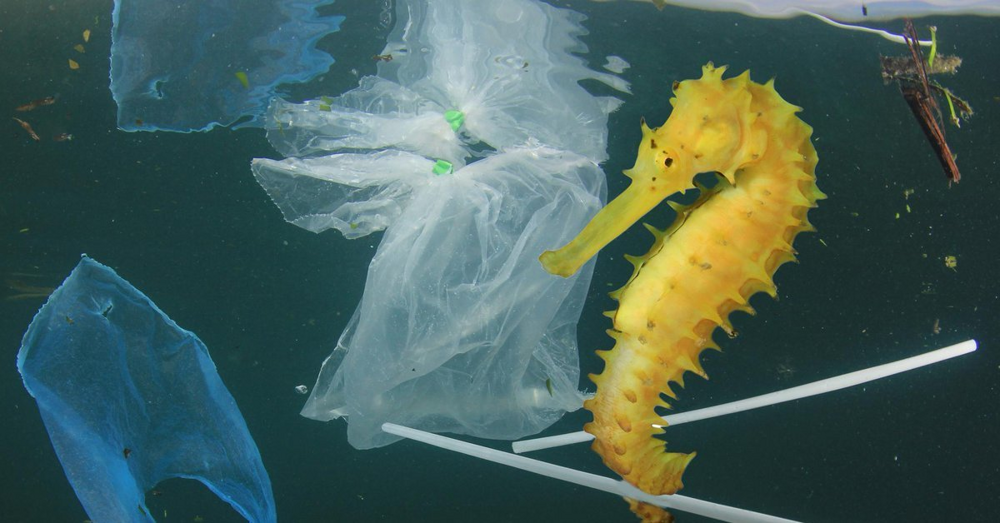
The seahorse bought fresh water in bags.
At the moment, so many animals and plants live on marine debris that some scientists have begun to talk about the formation of a new sustainable ecosystem. But not everyone agrees with them. Garbage patches are not epic continents of plastic in the middle of the ocean. The vast majority of garbage breaks down into microparticles in just 5-10 years. This means that species do not have a stable habitat and can die at any time. 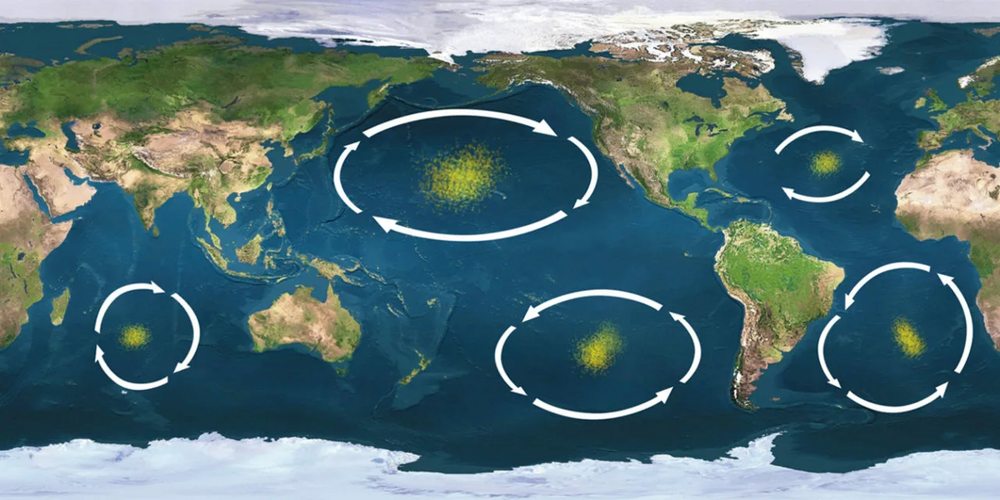
A map of all the major garbage patches on the planet.
And here a rather provocative question arises. Yes, the one in the title: does trash benefit the ocean? Yes, it does. But it does much more harm. Microplastic particles greatly harm plankton. Creatures not burdened with intelligence fill their stomachs with inedible garbage, which greatly hinders their ability to gain biomass. But plankton is the basis of all marine ecosystems. If it becomes less, everyone without exception suffers from it.












